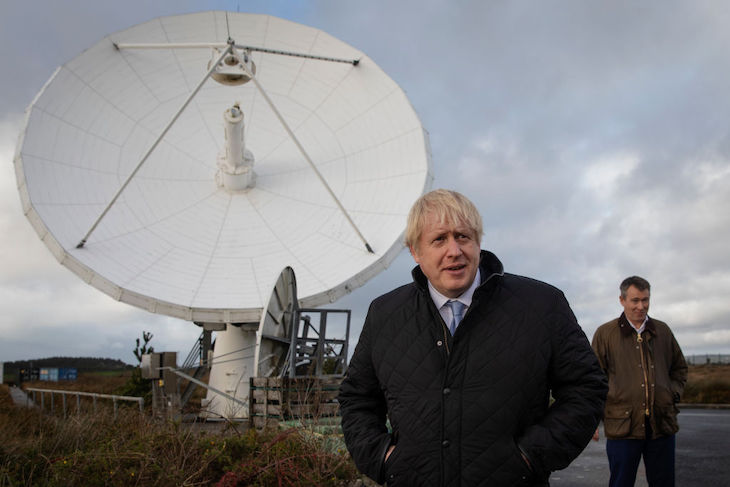When the British government spent £400 million on the satellite internet start-up OneWeb back in 2020, it was seen as precisely the kind of active, tech-led industrial strategy that could re-boot the British economy. There were hopes the deal would help secure a place for the UK at the heart of the emerging space economy. Then prime minister Boris Johnson saw it as a key part of launching ‘Galactic Britain’. But four years on, the taxpayer is on the hook for a £300 million paper loss after shares in OneWeb’s parent company sank to a record low.
The money poured into OneWeb has proved to be remarkably poor value
Even by the standards of government investment, the money poured into OneWeb has proved to be remarkably poor value. After the British government’s investment rescued OneWeb from bankruptcy, the company subsequently merged with Paris-listed space business Eutelsat. It was hoped that the mega firm could become a European rival to SpaceX’s Starlink satellite internet service. Fat chance. Elon Musk need not have worried: the market’s verdict is that OneWeb is a dud.
This week, as shares in Eutelsat sunk, the value of Britain’s shareholding has shrunk to just £110 million; this means that, based on its current value, almost three-quarters of the money put into the business has now effectively been lost. ‘We continue to work to ensure this investment provides value to UK taxpayers in the long term’, a UK government spokesman has said. Even a die-hard optimist like Boris Johnson probably doesn’t think the firm will revive its fortunes – or that this was a shrewd investment.
The contrast between OneWeb and Elon Musk’s Space X, which through its Starlink unit also provides internet connections via satellites, could hardly be more painful. In a fresh funding round earlier this month, Space X was valued at a staggering $350 billion (£280 billion). It has more than doubled its value over the last year, and far more since the UK government took a stake in OneWeb back in 2020. If the £400 million put into OneWeb had been invested in Space X instead, it would be worth well over £1 billion by now. Sure, that would have only financed Chancellor Rachel Reeves’s spending for a few minutes. But it would have been better than losing most of it.
There is a lesson here for governments when it comes to what they should do with taxpayers’ cash. Industrial strategies have been fashionable over the last few years. Ministers of all stripes have convinced themselves that they can pick winners, that they can choose the growth sectors of the future, and that they can partner with private enterprise to build huge new companies. Indeed, with its National Wealth Fund, the Labour government still seems beholden to this assumption. In reality, the money lavished on such projects is almost always wasted. Governments should stick to the day job. OneWeb has taught us that all over again – at an enormous price.






Comments